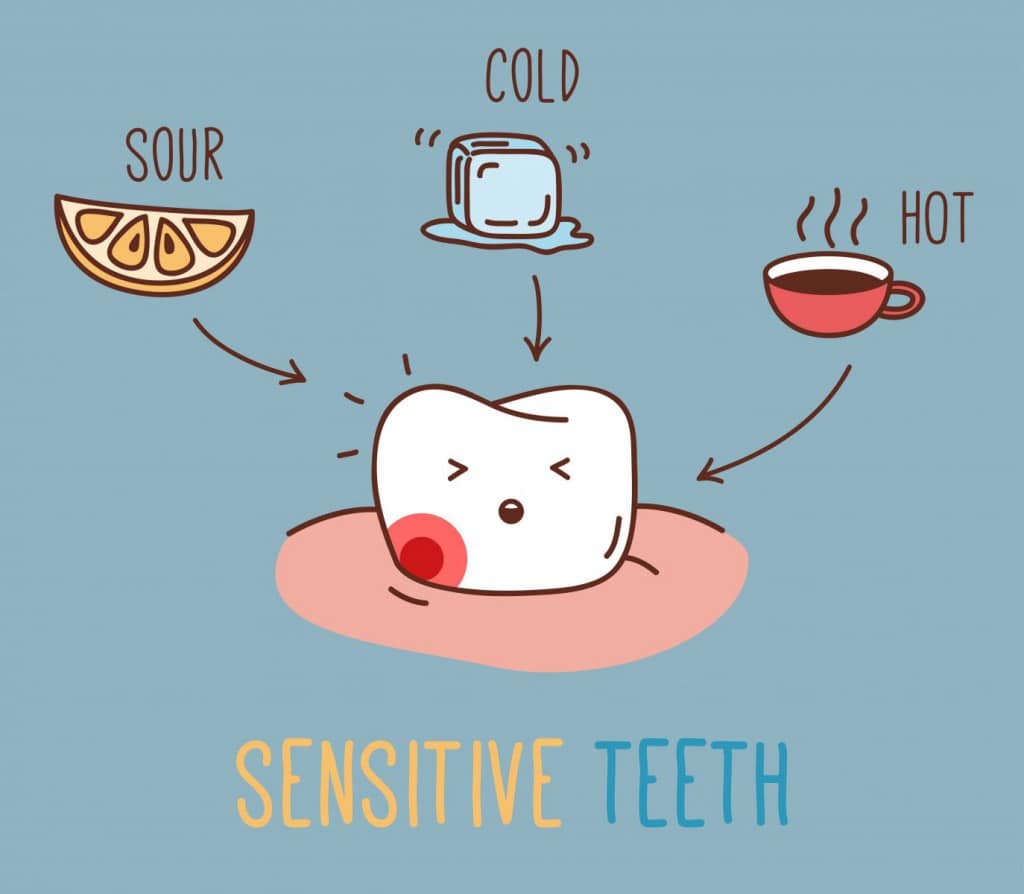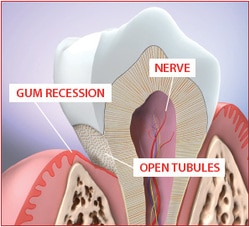Are You Living With Sensitive Teeth?
Is a taste of ice cream or a sip of hot tea sometimes a painful experience for you?
Does brushing or flossing make you wince occasionally?
If so, you might have a common problem known as sensitive teeth. Cavities and fractured teeth may cause increased sensitivity. However, if your dentist has ruled these issues out, then worn tooth enamel, a cracked tooth, or misaligned teeth roots could be the reason. A layer of enamel, the strongest substance within the body, shields the crowns of healthy teeth. A layer called cementum further protects the tooth under the gum line.
Beneath the enamel and the cementum is dentin, a part of the tooth that’s far less dense. The dentin contains microscopic tubules, which are small hollow tubes or channels. When the dentin loses its protective coating, the tubules allow the heat and cold, or acidic and sticky food to stimulate the nerves and cells in the tooth. This causes hypersensitivity and occasional discomfort. This irritation doesn’t lead to permanent harm in the pulp. Dentin can be exposed when the gums recede, and the result may be hypersensitivity near the gum line. Proper dental hygiene is the key to preventing gum tissue from receding and causing sensitive teeth in Westlake Village.
If you brush your teeth incorrectly or over brush, gum problems can result. Ask your dentist in Westlake Village if you have any questions regarding your daily dental hygiene routine. Sensitive teeth can be treated, and your dentist may recommend that you try a desensitizing tooth paste, which contains compounds that help block the transmission of sensation from the tooth surface to the nerve. Desensitizing toothpaste usually requires multiple applications before sensitivity is reduced. Your dentist can also recommend in-office techniques involving the application of fluoride gel to fortify tooth enamel and lower the transmission of these sensations.



